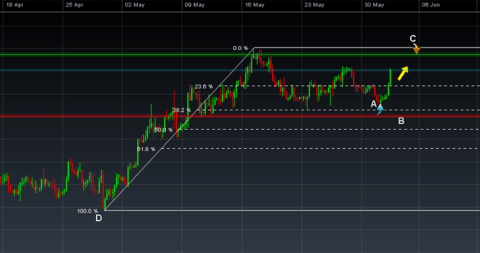A lot of trading had been debating over swing trading and day trading for so many years. Which is better – a question raised by many and yet the answer only depends on the lifestyle and the personality of the trader. Take a look at the differences in swing trading and day trading. This should help you identify which trading style you should use.
What is Swing Trading?
Swing trading is investing at a much lower scale. It requires loads of research before trades are being let out and accessing the market requires a much longer time. Hedge funds and even large institutions use swing trading due to its growth potential. This is a clear indication of how swing traders can be utterly successful.
Benefits of Swing Trading
- It has larger targets – swing traders are looking for big-time trades. They are not into small gains. This keeps them away from overtrading.
- More time – with swing trading, you don’t have to spend a lot of your time in front of the computer. Most swing traders typically spend one to two hours per day. And it’s still fine.
- You don’t need to check the market all the time – for Swing traders, they only have to check the market a few times every day unlike when you do Forex Trading.
- Low risk – swing traders open fewer positions, which means that they are not prone to more risks.
Disadvantages of Swing Trading
- You will be spending more waiting time to gain profit. It will be weeks and even months.
- Swing trading is prone to overnight risk. Leaving your trading position open the entire night is risky.
- You may have to pay for the swap fees. Your broker will charge you with this.
- Swing trading could suffer losses with news events including economic events, natural disasters, and political events.
What is Day Trading?
As the name suggests, Day Trading requires traders to trade the entire day. It is also called intraday trading and can be used in different trading strategies. Traders tend to open their positions in the morning and at the end of the day, close it without leaving the screen to make sure that you won’t miss any possibilities of good activity.
Benefits of Day Trading
- Day Trading Don’t Offer An Overnight Risk
With Day Trading, there are no overnight risks. At the end of the day, it is most likely that you have already sold everything. Therefore, you won’t have to worry or feel pressured at the end of your trading day.
- Earnings Can Be Used Faster
The earnings you have accumulated today can be used on the next trading day.
- Less Capital is Required
Compared to swing trading, day trading uses less capital just like in Forex Trading.
Disadvantages of Day Trading
- You have a high chance of trading on emotion.
- More commission will be collected from you.
- You will be more pressured to get the right trades.
- You will dedicate a lot of your time in front of the computer.
Takeaway
Whether swing trading or day trading, the decision should go down to the preference of the trader. At the end of the day, your decision counts. You just need to learn more about these two styles of trading so you can differentiate them from each other.
